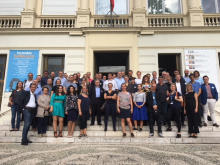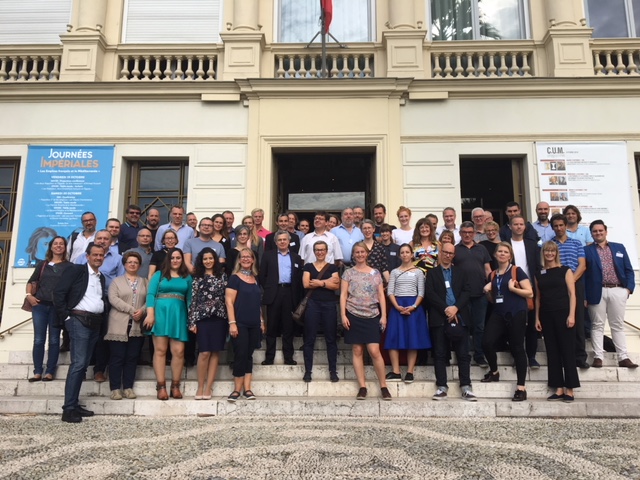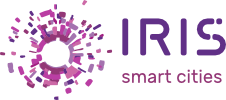
IRIS Smart Cities partners visited lighthouse city Métropole Nice Côte d’Azur, France in October 2018 to finalise a busy first year focused on in-depth analysis of end-user, business, citizen and technical requirements for smart cities. It was also a valuable opportunity to learn first-hand about the digital transformation and public-private partnerships taking the metropole from tourist town to globally recognised smart city leader.
Nearly 100 participants from eight European countries attended the IRIS Smart Cities meeting 16-18 October in Nice, France to share results, exchange transition strategies and refine upcoming actions. Partners have been working intensively during the first of five years to define key requirements, KPIs and a common monitoring framework for tacking five key areas of transition in our cities and assess conditions for adopting high-impact solutions in Europe and beyond.
This process has mobilised industry, academic, political and citizen experiences of the urban environment to define transition strategies and commissioning plans in IRIS lighthouse cities. In addition to extensive technical expertise, co-creation workshops with residents and stakeholders to ensure real needs are met have been part of the process – including using computer game thinking to define smart street lighting solutions and public spaces.
The meeting was full of ideas and exchanges, including practical site visits to the Mediterranean Institute of Risk, Environment and Sustainable Development (IMREDD). This hub for innovative public-private and academic partnership, showed why the city is one of the frontrunners of Europe in terms of smart strategies and urban digital transformation.
Delegates visited their Smart City Innovation Center (SCIC) an open technological platform analysing real-time of air quality, noise, water and energy consumption and much more from across the entire city. Among the features here, clear visualisations transform data from a network of nearly 3,000 micro sensors across 160 hectares to empower better decision-making, planning and engagement of all urban actors.
Award winning initiatives in data is just one of many instances of working together to improve services and the environment. Outlining further key initiatives of the metropole and within IRIS, Alain Chateau, Director of the Center of Excellence in Métropole Nice Côte d’Azur and the local project team spoke in detail about their work to improve smart grid flexibility, integrate renewables, test new shared electric mobility platforms and an ambitious City Innovation Platform (CIP).
This digital platform, a key aspect of the IRIS project, will collect and sort all the mobility, energy and environmental data produced from the various districts, and will coordinate with the CIPs from the other IRIS lighthouse cities, Utrecht and Gothenburg.
Bringing all these threads together are visionary future developments throughout the transformational ‘Eco Valley’, where the metropole has several designated districts. One which IRIS feeds into, is Nice Mérida, a planned 347,000m2 high-tech, low emission mixed-space district boasting ~50% housing, 10% R&D facilities, 10% services or retail and 30% public space.
As well as providing quality of life and boosting economic vitality, the district will also be home to the most important geothermal heating and cooling network in the region, distributing more than 30 GWh to the entire neighborhood powered 80% by renewables. Another first: the creation in parallel of a multi-energy smart grid offer with 90 innovative substations, optimising energy in the eco-district. The development is a flagship part of Nice Côte d’Azur’s goal to reach a 32% share of renewables in its energy mix by 2030.
IRIS is privileged to be contributing to and sharing the expertise making this a reality. Together, the project hopes to demonstrate that smart energy management and storage at an urban scale can have a significant impact on reducing peak load and fuel spending, deferring investment in network reinforcement while still meeting carbon targets and reducing the need for a significant reserve generation capacity increase.
So now the hard work to make IRIS cities smart, sustainable and engaged with its citizens truly begins and these test beds, pilots and planned initiatives must become tangible reality. IRIS will return to Métropole Nice Côte d’Azur before the nominal end of the project in 2021 and numerous activities are also in place in fellow cities Utrecht, Gothenburg, Alexandroupolis, Focsani, Santa Cruz de Tenerife and Vassa.
Readers can follow developments from the seven IRIS Smart Cities via twitter or LinkedIn.

02 Nov 2018

